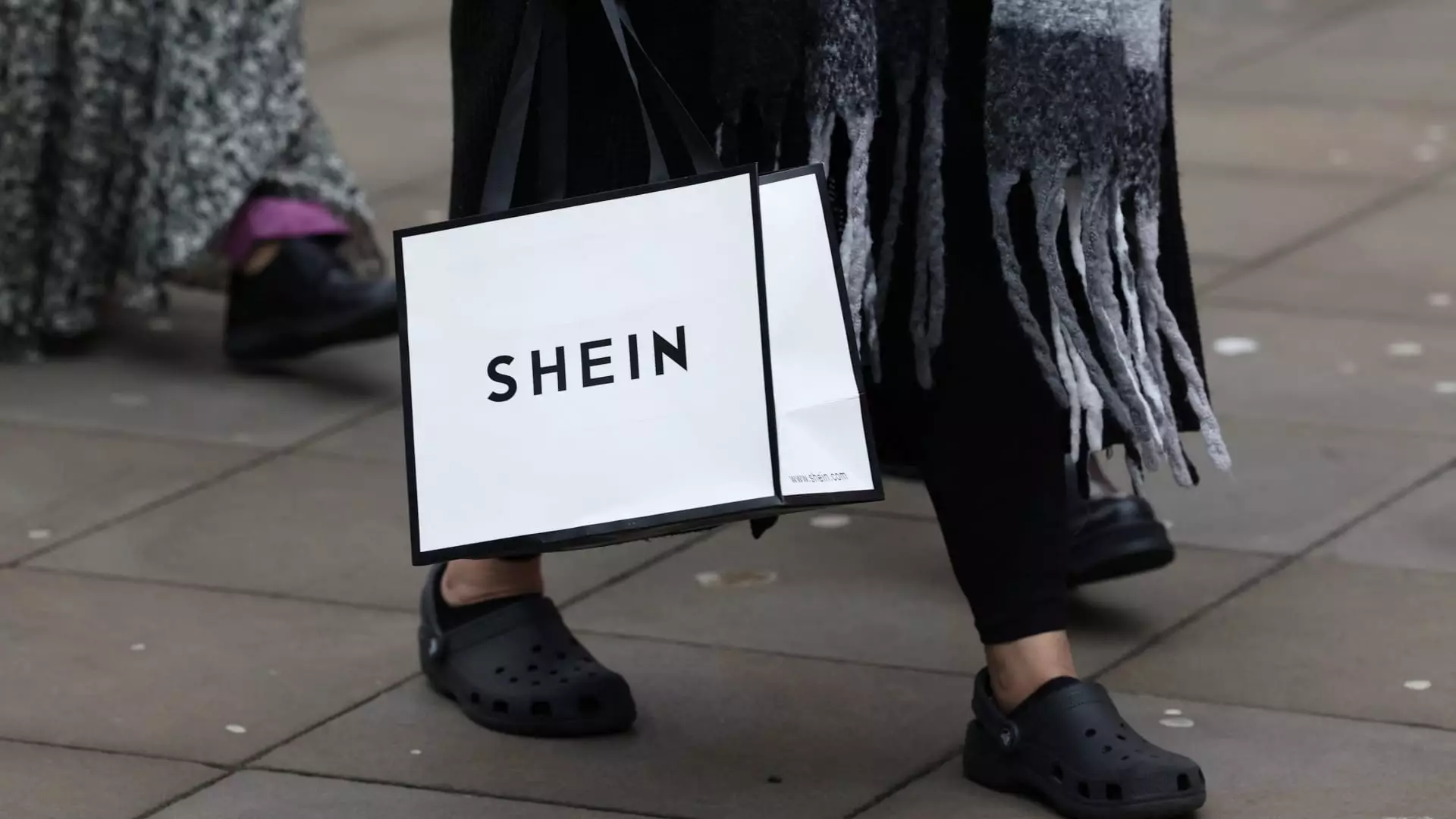As Shein, the distinctive fast fashion retailer, prepares for a potential public listing in London within the year, the company is stepping up its efforts to address pressing concerns regarding product safety and sustainability. Following a significant product recall in the U.S., Shein released a statement aimed at highlighting its commitment to safety standards and appealing to lawmakers, particularly in the UK, where scrutiny over the fashion industry runs high. This maneuver is not just a routine update; it represents a strategic play in the context of a forthcoming IPO, underscoring Shein’s urgent need to cultivate trust and credibility in a market that is hesitant about its practices.
The recent press release from Shein was notably informed by the company’s acknowledgment of its first product safety recall in the U.S. since 2021. The recall involved over 300 hair dryer brushes, which posed serious electrocution hazards. By promptly addressing these concerns and offering refunds to affected customers, Shein exhibits a reactive stance aimed at mitigating reputational damage. Moreover, the company’s assertion of having conducted over two million product safety tests last year, leveraging well-known industry labs, is intended to establish a narrative of accountability and diligence in its operational practices.
Shein’s proactive approach to testing, particularly with items sold by third-party vendors, is a distinguishing characteristic in an industry often criticized for insufficient regulatory measures. While many online marketplaces typically place the onus of testing on sellers, Shein’s decision to proactively conduct “risk-based, randomized testing” positions it as a more conscientious player in the fast fashion arena. The company also announced the termination of over 260 sellers for compliance failures, a move that seems designed to convey a message that safety and quality are non-negotiable standards within its operations.
Beyond safety issues, Shein has sensed the growing demand for transparency and ethical practices in the fashion industry. The company launched new sustainability initiatives and a nonprofit foundation, exemplifying its willingness to engage with the pressing demand for environmental responsibility. However, skepticism remains regarding the authenticity of such commitments, especially as the details of these initiatives are yet to be fully articulated and materialized into measurable actions.
The U.K. market provides a unique challenge for Shein. Lawmakers have scrutinized the retailer, questioning its supply chain practices, particularly regarding the sourcing of materials such as cotton from regions associated with human rights abuses, notably Xinjiang, China. The lack of coherent and satisfactory responses from Shein’s representatives during parliamentary hearings has raised alarms about the company’s transparency. Such reticence to engage substantively with critical inquiries reflects poorly on Shein’s credibility, stirring doubts about its commitment to ethical sourcing.
Shein’s dilemmas underscore a broader tension faced by many in the fast fashion industry: the balancing act between profitability and ethical business practices. Fast fashion thrives on rapid turnover and low-cost production, often at the cost of ethical considerations. Critics argue that irrespective of Shein’s charm offensive, the likelihood of pressured labor practices and environmental degradation remains an inextricable component of its business model.
In a landscape where consumer awareness regarding products’ origins is surging, Shein’s future success will likely hinge on its ability to transform commitments into actions. Assurance of adherence to human rights, sustainable sourcing, and comprehensive transparency will be critical in swaying public opinion and attracting socially-conscious investors ahead of its public listing.
As Shein embarks on this critical journey toward a public listing, it faces an uphill battle in convincing stakeholders of its commitment to reform. The upcoming months will be pivotal; beyond crafting effective public relations narratives, the company must deliver real, tangible proof of its safety measures and sustainability initiatives.
To win over lawmakers and consumers alike, Shein needs more than just a polished image. It is essential for the company to adopt a transformative approach that prioritizes ethical sourcing, enhances accountability with meaningful oversight, and fosters a genuine commitment to sustainability. Only by doing so can Shein secure its position in the evolving fashion marketplace and alleviate the skepticism surrounding its operations ahead of its potential listing in London.


Leave a Reply